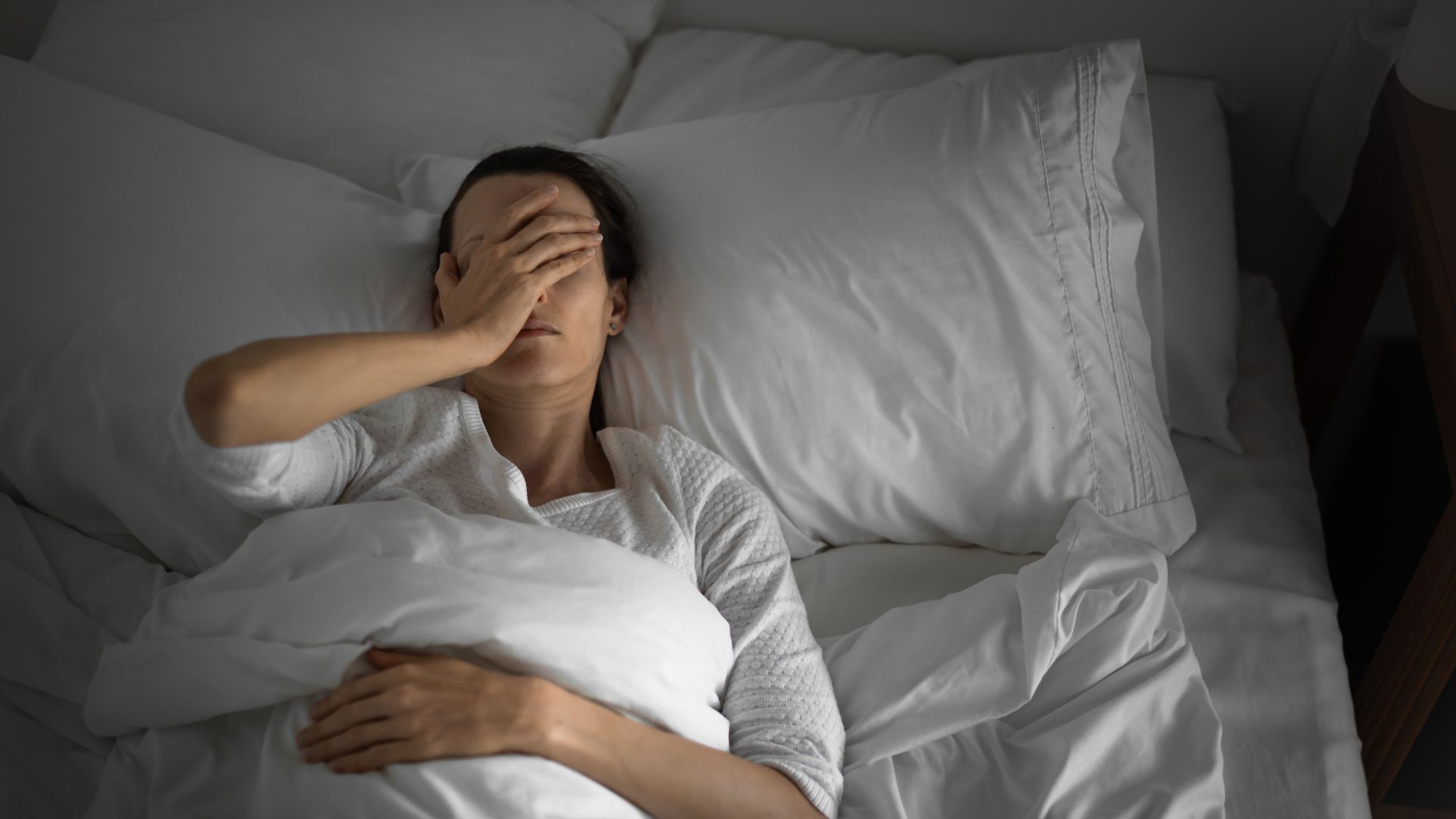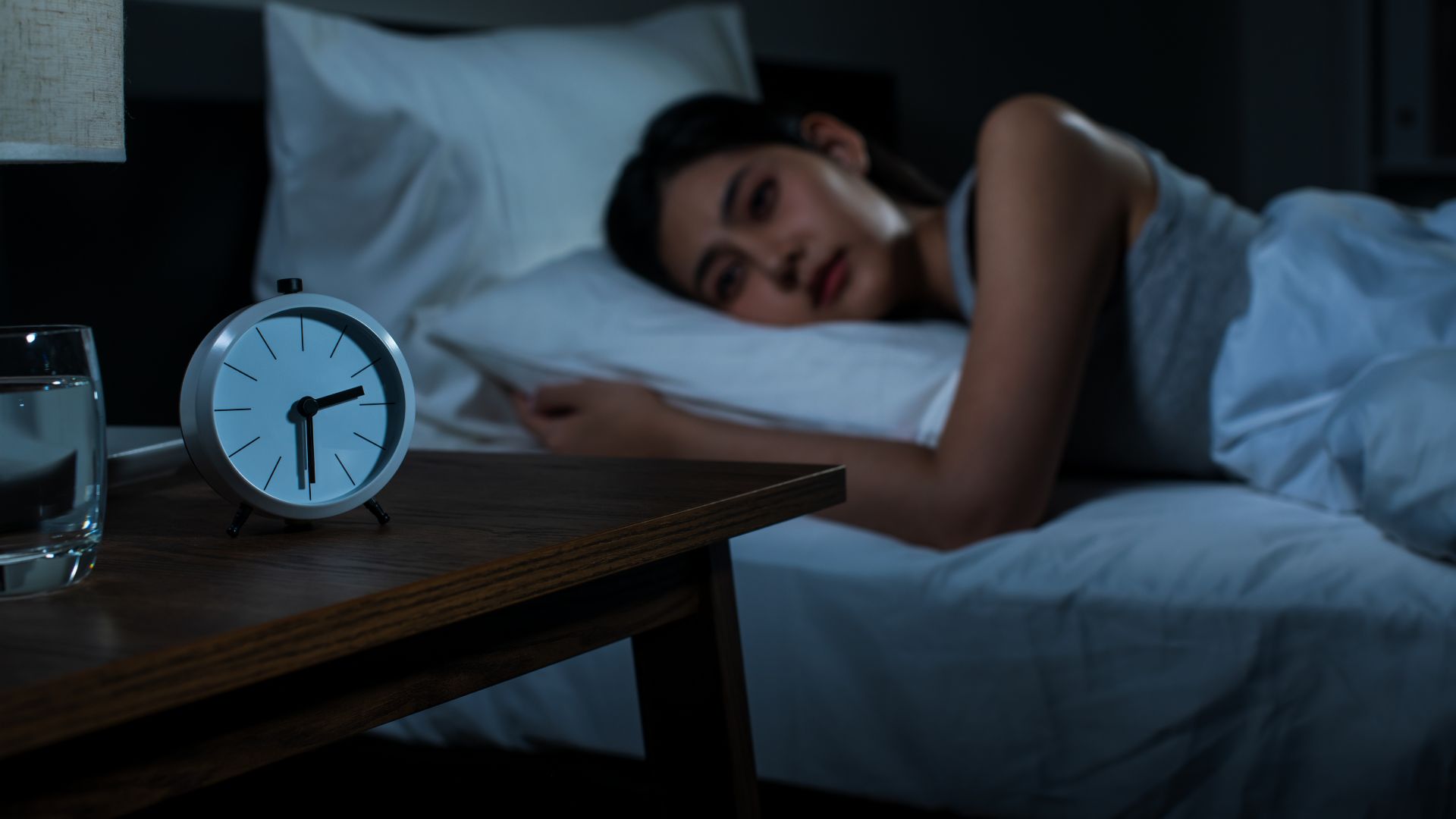Chronic insomnia could be aging your brain by 3.5 years, scientists find
And roughly 12% of Americans experience the sleep disorder

Being regularly unable to sleep could cause your brain to age faster, new research published in Neurology Journals indicates.
The study found that those experiencing chronic insomnia, defined by at least three nights of poor sleep a week for three months or more, showed a 40% higher risk of developing dementia or mild cognitive impairment (MCI) compared to those with non-chronic insomnia.
This study further illustrates the necessity of consistent sleep in maintaining a healthy lifestyle — according to the American Academy of Sleep Medicine, 12% of Americans have been diagnosed with chronic insomnia.
"Our results also add to a growing body of evidence that sleep isn't just about rest — it's also about brain resilience," explains Diego Z. Carvalho, MD, study author and a member of the American Academy of Neurology.
Key takeaways
- Chronic insomnia is similar to an additional 3.5 years of aging for the brain
- 14% of participants with chronic insomnia displayed MCI, compared to 10% without
- Chronic insomnia linked to reduced thinking skills
Poor sleep is more than just a groggy morning and a restless night; research is consistently uncovering links between bad sleep and health concerns.
This recent study, undertaken by the American Academy of Neurology, tracked 2,750 cognitively healthy adults with an average age of 70 over the course of 5.6 years.
Participants underwent annual testing to understand cognitive ability, including thinking and memory tests.
Get instant access to breaking news, the hottest reviews, great deals and helpful tips.
Those experiencing chronic insomnia displayed a faster decline in thinking and memory skills compared to those with non-chronic insomnia.
"We saw faster decline in thinking skills and changes in the brain that suggest chronic insomnia could be an early warning sign or even a contributor to future cognitive problems," explains study author, Diego Z. Carvalho, MD.
In addition, the brain scans of those with chronic insomnia displayed higher levels of white matter hyperintensities, indicating damaged brain tissue, and amyloid plaques, a protein that has been linked to Alzheimer's disease.
Association, not causation
Sleep specialists involved in the study acknowledge that the research only indicates association, not causation.
Rather than poor sleep resulting in cognitive decline, it's possible that a lack of sleep might be an early sign of neurodegeneration.

Regardless of association or causation, the results join a growing body of evidence supporting how essential monitoring and caring for our sleep health is.
"This reinforces the importance of treating chronic insomnia — not just to improve sleep quality but potentially to protect brain health as we age," says Carvalho.
3 tips for sleeping better
Researchers behind the study emphasize the necessity of focusing on our sleep health. Here are some steps you can take to help maintain and care for your sleep.
1. Develop a consistent bed time routine

We all experience periods of disrupted sleep, often caused by health or lifestyle changes. However, if you regularly struggle to fall asleep or stay asleep, your lack of rest is impacting your ability to function the next day, or recent sleep changes are unexpected and you can't find a cause, it's essential to speak to a healthcare professional.
Committing to a regular sleep schedule (one that aligns with your sleep chronotype) teaches your body when to get sleepy and when to feel awake; our circadian rhythms love predictability.
This routine can also help you identify sleep issues in the early stages — if your usual schedule is leaving you fatigued, you might be lacking quality sleep or even experiencing sleep apnea.
As well as consistent sleep times, a healthy sleep routine includes time to wind down before bed. That means stepping away from daily stresses, bright lights (yes, including screens) and caffeine to engage in calming habits.
Introducing sleep techniques, such as the military sleep method and cognitive shuffling, to your routine can also help you drift off.
2. Keep a sleep diary
A sleep diary is often used to identify signs of insomnia. This simple tool tracks both the duration and the quality of your sleep, including how fatigued you feel the next day, plus habits that might be impacting your rest.
If you've recently noticed a change in your sleep or you're feeling tired during the day despite sticking to your usual routine, a diary can help you identify the problem.
3. Invest in a comfortable sleep set-up
If you find your sleep is disrupted by endless tossing and turning to avoid discomfort, the problem might lie with your bed.
We encourage everyone to invest in the best mattress for their sleep position, body type and sleep needs, to ensure you have a reliable foundation for better rest, regardless of other disruptions.
A new pillow might also be a necessity — the best pillow for your sleep needs can help you avoid neck pain and headaches.
Follow Tom's Guide on Google News to get our up-to-date news, how-tos, and reviews in your feeds. Make sure to click the Follow button.

Ruth is an experienced Senior Staff writer at Tom’s Guide, covering all things sleep and mattresses. She writes to help people sleep better, from how-tos to the latest deals to mattress reviews, and has interviewed an array of experts who share her passion. She is also our specialist on memory foam — she’s flown around the world to see memory foam being made — and leads our hotel mattress content. She has a deep interest in the link between sleep and health, and has tried enough mattresses, from Helix to Nectar to Simba, to know the right bed really can make a difference to your wellbeing. Before joining the team at Tom’s Guide, Ruth worked as a sleep and mattress writer for our sister website, TechRadar.
You must confirm your public display name before commenting
Please logout and then login again, you will then be prompted to enter your display name.
 Club Benefits
Club Benefits





